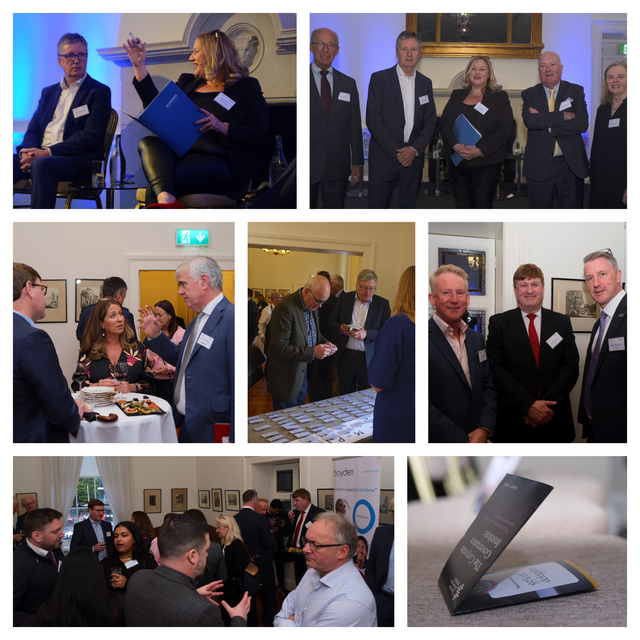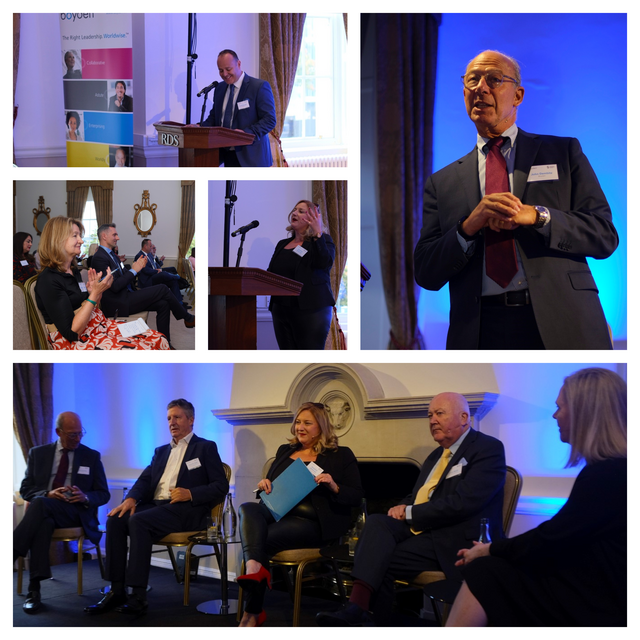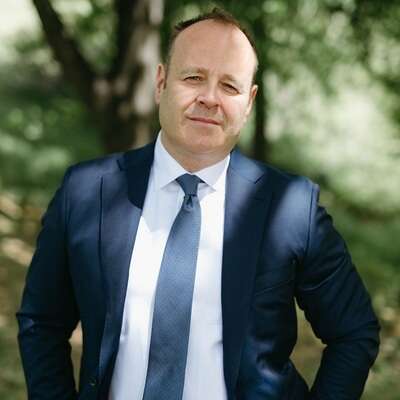Report from a networking event and panel debate among distinguished figures in the cultural and economic life of Ireland and the UK
On 28th September, a collaboration between the Corporate Governance Institute (CGI) and Boyden Ireland shone a light on how to make the career transition from being an executive to non-executive director. ‘Bridging your career – from executive to non-executive,’ took place at the Royal Dublin Society, attended by more than 60 business leaders from Dublin and the regions.
The discussion was led by a panel:
- Dearbhail McDonald, Moderator: Journalist, Author, Broadcaster and Board Director
- David W. Duffy: CEO & Co-Founder of the Corporate Governance Institute, a global organisation based in Ireland
- John Dembitz: Chairman & NED
- Gillian Harford: Country Executive, 30% Club Ireland
- Conor Brady: Chair, Author and Journalist
Debate focused on:
- Key decisions and first steps in making the transition from executive to non-executive
- Developing a portfolio of relevant experience
- Building your non-executive director brand
- The significance of diversity and environmental, social and governance (ESG) imperatives
- Understanding the difference between the roles of executive and non-executive
- Upskilling the board of the future
In his welcome remarks, Boyden host Kevin Keegan explained, “Our purpose at Boyden is to be the best we can be in cultivating, curating and connecting Irish companies and global leadership talent”.
CGI’s David W. Duffy set the scene by outlining the key steps involved in transitioning from executive to non-executive.
A good NED keeps their nose in, and fingers out.
”First of all, start early in building your brand. Take every opportunity to network with purpose and build relationships with executive search experts who can advise you. Pay particular attention to your LinkedIn profile, your online presence and opportunities to ‘be found’. It’s not who you know but who knows you in this digital world. There is no single route to being a non-executive director so you have to plan your own path. It is important to take time to understand where you can contribute value to a company’s strategy and what kind of organisation you are best suited to, whether that’s private companies, state agencies, PLCs; or you may prefer a portfolio approach. There is usually no script or role description for a non-executive director. A good non-executive keeps their nose in, and fingers out. When considering an organisation do your due diligence, ensure you believe in the organisation’s strategy, that it is financially stable and you are comfortable with their culture and values.”
Diversity brings richer conversation, a wider scope of reference and more interesting input and solutions.
For Gillian Harford, Country Executive at the 30% Club Ireland, diversity is a major focus.
”Female representation on ISEQ20 boards in Ireland has risen to thirty-two percent today, from less than thirteen percent five years ago. Diversity brings richer conversation, a wider scope of reference and more interesting input and solutions. Getting away from ‘group think’ means not being afraid to ask questions, however challenging they may seem. When it comes to transitioning to a non-executive, we talk about the ‘currency’ that you bring – it’s a bit like when the Irish pound transitioned to the Euro; you’re still legal tender but realised in a very different way. A non-executive is still a senior business leader, but with an organic change; as a non-executive you are no longer the executive ‘doer’. Your role is to stand back, ask questions, set the tone and recognise the importance of owning the culture. It's important to get connected to the culture in your board’s organisation, without undermining the CEO and leadership team.”
You are not going to be hired for your technical expertise, but for your judgement, your values, experience and reputation.
Conor Brady points to the harsh reality.
”When you leave your executive career, be aware than your phone is not going to ring with a compelling range of wonderful opportunities. Having said that, it’s never too early to build and nurture a network throughout your career that could yield different types of opportunities in the future. At the non-executive stage, there is still a kind of ‘hustle’. But first you need to stand back, take time out and connect with your perspectives. You are not going to be hired for your technical expertise, but for your judgement, your values, experience and reputation. So, it’s important to shake off the shackles of being an executive and consider your higher purpose and the kind of organisations that will enable you to leave an authentic corporate legacy of which you are proud.”
Making a difference… be prepared to say ‘no’ but in a collegiate manner. Engage with the board, with the executive team and add value wherever and whenever you can. Being a non-exec is not a job for a fixed set of hours per week or month, it’s about being available, involved and taking the initiative as appropriate.
John Dembitz expanded on this further.
”Be proactive about your brand, your network and your career in general. If you are not careful, your executive network can go cold very fast, so take time out, keep your network warm, have coffee, lunch, engage in whatever works for you but network on a consistent basis. To me the opportunity to be able to have an impact on the destiny of organisations and critically the people within them is a massive turn-on!”
Guest perspective on executive search at board level
Con Quigley, non-executive director, EI Electronics and former Partner, BDO
”A very valuable informative event. Hearing from non-execs further along the journey provides knowledge and lessons learned that can’t be gleaned from white papers or presentations; understanding nuance from lived experience has sharpened my antennae.
The interaction between search and advisory is extremely important. As an advisor at BDO, I had a number of clients where this partnership was transformative, and delivered some of my proudest moments, so board search is potentially a huge value add.
It can be hard to get a board to where it needs to be, particularly if you come in as the first non-executive director with a mandate for improving corporate governance. As businesses get bigger, you have to adopt different ways of getting things done; let professionals do what they do, as long as they can be trusted and will deliver.
My advice is to get a good sense of how a search firm’s expertise is provided at board level. Look for a serious, long-term professional, a collaborative expert with the confidence to come in and manage an NED search, leading the board in how this works.”
Guest perspective on the remit of a NED, and taking a portfolio approach
Stuart McCaul, Chief Operating Officer, ESW Capital; CEO and NED
”A thought-provoking event with a phenomenal guest panel and exceptional moderator. My interesting takeaways:
The remit of a non-executive is wider than expected, NEDs should be challenging the culture and diversity & inclusion, rather than just risk assessment. A cultural audit at board level is not something we would have thought of doing.
Executives looking for a career as a NED needs a different resume. An executive resume is about chronology of achievement, whereas an NED resume needs to focus on the skills and knowledge built up as a result of your experience.
You get typecast as a non-executive, so consider the type of company you want to have in portfolio. If you specialise in SMEs, you won’t be considered for the board of a larger business, so avoid taking roles on a one-by one basis.
An obvious point, worth more thought: match your skills to the strategic brand of the companies whose boards you would like to join. Read about them, find out about strategy, work out what they need and what you bring.”
We extend a big thank you to our panellists and guests for participating in this event, and for sharing their personal perspectives and experiences.


Contact our Boyden Ireland team listed below or David W. Duffy, Co-Founder and CEO, CGI.







